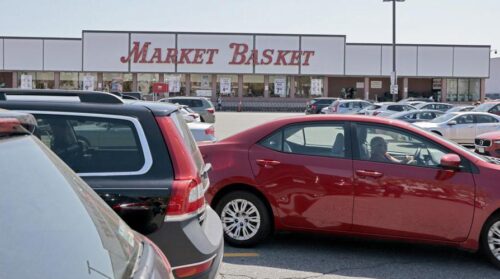Hope for the best, expect the worst.
It’s sound advice — hilariously dispensed in the movie “The 12 Chairs’’ by Mel Brooks — for coping with the vicissitudes of life.
Boston Mayor Michelle Wu might do well to heed those words as the city faces a likely drop in commercial property tax revenue driven by the post-pandemic shift to hybrid work.
Wu is skilled at projecting confidence about Boston’s future. But is she also preparing for what experts increasingly see as a potentially painful cycle of falling office building values, shrinking property tax receipts, and mounting fiscal strain?
It’s tough to tell.
Last week, the Boston Policy Institute and the Center for State Policy Analysis at Tufts University released a study forecasting that the assessed value of Boston office space could drop between 35 percent and 45 percent over five years.
Such a decline would leave a potential $1.7 billion hole in the city’s budget, larger than the shortfall the two groups estimated in their initial report last year.
When asked by reporters about the projections, Wu underscored the city’s rock-solid bond rating, fledgling effort to convert office buildings into housing, and decisions by Lego and Eli Lilly to set up shop in Boston.
“We are going to continue to celebrate and highlight the progress that we have made, while continuing to double down on believing in Boston,’’ she said.
That’s hoping for the best.
But then she went on: “Others can be part of a shadowy organization that is looking to tear down the city’s progress.’’
That was a shot at BPI, a 501(c)(4) think tank that can engage in politics without disclosing its donors.
Its earlier report with Tufts’s state policy center, which doesn’t take political positions, was used by real estate and business groups to help kill Wu’s bid to temporarily shift more of the tax burden onto commercial landlords.
The diss might be good politics for the mayor, who faces a reelection challenge from Josh Kraft.
But in disparaging BPI, she sidestepped what could be her biggest challenge in a second term: keeping residential taxes in check without the once-dependable growth in commercial real estate levies.
Boston generates a larger portion of its tax revenue from commercial properties than any comparable city, a strategy that worked for decades as downtown development boomed.
But, as the BPI report warned, “In the current economic environment, Boston’s unusual tax structure has ceased to be a source of resilience and has become a liability.’’
That’s a harsh reality at a time when the Massachusetts economy is slowing and everyone is bracing for the impact of President Trump’s tariffs, medical research funding cuts, and his attempt to devastate Harvard University’s finances.
Against that backdrop, Wu’s cheerleading can come across as tone-deaf — or worse, denial.
“Although we’re facing the same uncertainty that cities everywhere are dealing with right now, the reality is that Boston is in the best possible position to weather this moment,’’ Wu said last week after the City Council approved her budget for the fiscal year that begins July 1.
Really? With everything the city is up against?
To be fair, Wu said in April that the city needs to be ready “for the worst in every case.’’
And her $4.8 billion budget included a below-average increase of 4 percent, a nod to the fact that the city couldn’t continue the ramped-up spending of previous years.
“The City is taking an all hands on deck approach to reinvigorating Downtown — both by promoting economic opportunity to attract more people at night and on the weekends and by adding housing to bring more people to the neighborhood during the day and after work hours,’’ a Wu spokesperson said in a statement.
Wu is once again seeking the Legislature’s approval to cover any shortfall in office property tax collections by temporarily increasing the percentage of overall tax revenue paid by commercial landlords.
The change — which would limit any increase in tax bills for residential property owners at the expense of struggling commercial landlords — was rejected last year by the Senate.
Its chances for passage this year are slim to none, which raises this question: What’s Wu’s Plan B?
The mayor hasn’t said.
Hope for the best. It’s not clear the city is prepared for the worst.
Larry Edelman can be reached at larry.edelman@globe.com.

